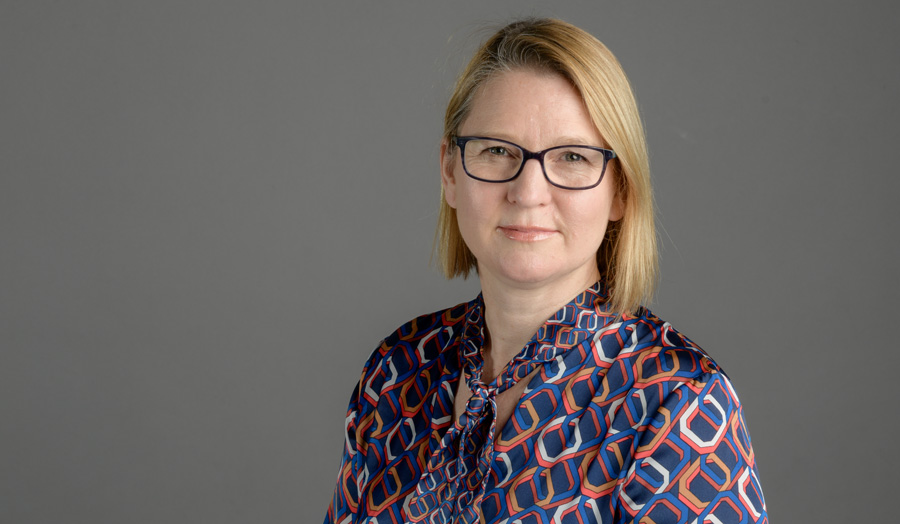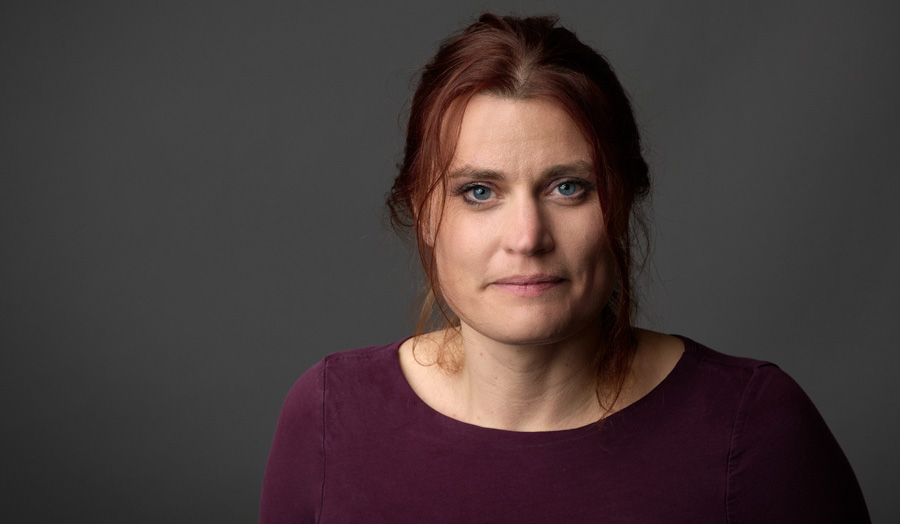Why study this course?
Psychology is central to understanding people and their behaviour. Our Psychology BSc is accredited by the British Psychological Society (BPS) as granting eligibility for the Graduate Basis for Chartered Membership (GBC), which is an essential first step towards becoming a chartered psychologist. Gaining GBC through our Psychology BSc degree will allow you to progress to specialised postgraduate training and a career in psychology.
The course is designed to ensure you develop a thorough understanding of the core areas in psychology (biological, cognitive, developmental, social, individual differences, and research methods). You’ll also learn a wide range of academic and transferable skills that will be invaluable in future employment or postgraduate training.
More about this course
You’ll learn how people think, feel and behave in different situations. You’ll also learn how to challenge and explore common assumptions and address questions such as: Why do some people become addicted to drugs? Why do people behave differently on social media? Why do some people develop eating disorders or phobias? Why are some people more forgetful?
Our Psychology BSc provides the perfect foundation for a wide variety of employment opportunities or future training as a professional psychologist. In your first year, you’ll gain a broad understanding of the different areas of psychology and essential research skills. In your second year, you’ll broaden your knowledge base and explore more complex topics, such as intelligence, creativity, decision making and prejudice. Your final year will offer you the chance to specialise in an area that interests, such as forensic, work, counselling or clinical psychology. These modules offer an advanced understanding of psychological theory, research and practice, taught by experts in their field and psychology practitioners.
Throughout the course you’ll learn how to use specialist methods and equipment, gaining practical skills in psychological research. You’ll undertake an individual research project under the supervision of an academic tutor. The knowledge you’ll gain from the course can be applied in the real-world to many different contexts and situations.
Assessment
Our Psychology BSc assessments include seen and unseen exams, essays, research reports, individual and group projects, oral presentations, poster presentations and infographics, press releases and reflective exercises.
Professional accreditation
Our Psychology BSc degree is accredited by the British Psychological Society (BPS) and is the first step towards becoming a professional psychologist.
You'll also benefit from free student membership to the BPS when you study this course.
Fees and key information
Apply nowEntry requirements
In addition to the University's standard entry requirements, you should have:
- a minimum of grades BCC in three A levels or minimum grades BC in at least two A levels in academic or business subjects (or a minimum of 104 UCAS points from an equivalent Level 3 qualification, eg BTEC Level 3 Extended Diploma/Diploma; or Advanced Diploma; or Progression Diploma; or Access to HE Diploma with 60 credits)
- English Language and Mathematics GCSE at grade C/4 or above (or equivalent)
Applicants with relevant professional qualifications or extensive professional experience will also be considered on a case by case basis.
Entry from appropriate foundation and access courses will also be considered.
If you don’t have traditional qualifications or can’t meet the entry requirements for this undergraduate degree, you may still be able to gain entry by completing our Psychology (including foundation year) BSc (Hons) degree.
Accelerated study
If you have relevant qualifications it may be possible to enter this course at an advanced stage rather than beginning in the first year. Please note, advanced entry is only available for September start. See our information for students applying for advanced entry.
Specific qualifications that may make you eligible for advanced entry to this course include a relevant foundation degree, HND or equivalent.
Accreditation of Prior Learning
Any university-level qualifications or relevant experience you gain prior to starting university could count towards your course at London Met. Find out more about applying for Accreditation of Prior Learning (APL).
English language requirements
To study a degree at London Met, you must be able to demonstrate proficiency in the English language. If you require a Student visa (previously Tier 4) you may need to provide the results of a Secure English Language Test (SELT) such as Academic IELTS. This course requires you to meet our standard requirements.
If you need (or wish) to improve your English before starting your degree, the University offers a Pre-sessional Academic English course to help you build your confidence and reach the level of English you require.
Modular structure
The modules listed below are for the academic year 2023/24 and represent the course modules at this time. Modules and module details (including, but not limited to, location and time) are subject to change over time.
Year 1 modules include:
This module focuses on the basic principles of neuroscience and physiology related to behaviour. The model aims to provide students with an introduction to the fundamentals of biological psychology. It also provides students with an understanding of, and a framework for evaluating, biopsychological concepts, theories, and research methods in their historical and cultural context. Students will learn about the use of data from both humans and animals and ethical considerations associated with this branch of psychology. The module will also allow students to engage in independent learning and acquire subject-specific and transferable skills, including the ability to provide evidence to support or refute core concepts and assumptions.
This module aims to introduce students to some of the most influential theories in developmental psychology. You will be introduced to some classic research that will help you to evaluate theories of development and their empirical basis. There will be the opportunity to examine and discuss existing developmental research in its historical and cultural context. The module also aims to provide you with the qualities and transferrable skills necessary for employment, including: written communication skills, digital literacy skills, the ability to contribute to discussions, independent study, time keeping, summation, evaluation skills, an understanding of the scientific method, and consideration of the ethical issues underlying research. The aims of this module are aligned with the qualification descriptors within the Quality Assurance Agency’s framework for Higher Education qualifications.
This module aims introduce students to some of the foundational theories in cognitive psychology, including a prehistory of cognition which considers earlier approaches to human thought and behaviour. Students will be introduced to classic research to help them to understand and evaluate theories of cognition in their historical and cultural context, and to key ethical considerations in this branch of psychology. There will be the opportunity to participate in classic experiments in seminars and workshops. This module provides students with opportunities to acquire key transferrable skills necessary for employment (e.g. written communication skills, digital literacy skills, discussion contribution, independent study and time keeping, summation and evaluation skills, and understanding of the scientific method and ethical research consideration). The aims of this module are aligned with the qualification descriptors within the Quality Assurance Agency’s Framework for Higher Education Qualifications.
The aims of this module are aligned with the qualification descriptors within the Quality Assurance Agency’s Framework for Higher Education Qualifications. Specifically, this module aims to you to the practice of conducting and reporting research in psychology, and to develop your skills in gathering, analysing and evaluating information. You will learn about the link between psychological research questions and psychological investigation methods, and will be introduced to simple data description and analysis techniques. You will explore a range of research methods employed in psychological investigation; and will learn to use computer applications that contribute to the conduct and reporting of psychological research. You will learn about the British Psychological Society’s Code of Human Research Ethics, and what this means for the way in which we design and conduct research studies in psychology. You will also learn about research reporting conventions, and how to share your research with others using professional publication guidelines. Overall, this module aims to encourage you, and give you opportunities, to develop practical, intellectual and interpersonal skills that are of use in many employment settings, and which also provide you with a toolkit of intellectual and practical academic skills which will assist your progression to modules at levels 5 & 6.
The aims of this module are to allow students to:
(1) be aware of and understand classic and contemporary theories and models of personality in their historical and cultural context.
(2) understand how theory and research in this domain can help explain individual differences in behaviour in everyday life.
(3) think critically about different theories and assessment methods in personality psychology.
(4) be aware of ethical considerations in research on personality.This knowledge and understanding will help students’ employment skills by enabling them to appreciate the different perspectives that are needed to fully understand individual behaviour in everyday life. The module develops students’ critical understanding of some key principles underlying psychological research (e.g., ethical principles and the historical and cultural specificity of research in personality psychology) that will facilitate progression to modules at levels 5 and 6. The aims of this module are aligned with the qualification descriptors within the Quality Assurance Agency’s Framework for Higher Education Qualifications.
This module provides students with an introduction to and understanding of key theories and models of social psychology in their historical and cultural context. It will help to develop students’ knowledge and understanding of the social psychological basis of behaviour. In particular, it will focus on different types of social influence and their impact on how individuals think, feel and behave in different contexts and domains. Classic social psychological studies will be discussed in their historical and cultural context to provide students with an understanding of how knowledge in this branch of psychology has evolved. The module also considers ethical issues with many of the classic studies in this branch of psychology and allows students to reflect on experimental procedures and their potential implications for psychological knowledge and society. In this way, the module develops students’ critical understanding of some key historical and contemporary themes and debate in this branch of psychology, which will facilitate progression to modules at level 5 and 6. This will also help students’ progression to employment or post-graduate study by enabling them to appreciate the different perspectives that are needed to fully understand individual behaviour in everyday life. The aims of this module are aligned with the qualification descriptors within the Quality Assurance Agency’s Framework for Higher Education Qualifications
The aims of this module are aligned with the qualification descriptors within the Quality Assurance Agency’s Framework for Higher Education Qualifications and the University’s Education for Social Justice Framework. Specifically, this module aims to:
• Develop students’ ability to study and learn Psychology at HE level.
• Enable students to reflect upon and develop their abilities in oral and written communication, selecting, analysing and evaluating information, and interpersonal relationship management.
• Support students in understanding and creating a profile of personal and professional skills (e.g. communication and digital literacy skills), attributes and achievements.
• Give students the opportunity to critically reflect on the limitations of the discipline in terms of its reliance on Europeans and North American paradigms and racialised and gendered assumptions.As such, the module encourages students to develop practical, ethical, intellectual and interpersonal skills that are of use in many employment settings, and also provides students with a toolkit of intellectual and practical academic skills which will assist their progression to modules at levels 5 and 6.
Year 2 modules include:
The aims of this module are to provide students with an understanding of the (1) internal representations and processes underlying cognition; (2) key theories and models of cognitive psychology and related research in their historical and cultural contexts; (3) how these areas can be scientifically and ethically investigated using appropriate methodologies; and (4) how knowledge of cognitive psychology can be ethically applied to the real world and their relevance to a range of settings. This will help develop students’ employability by providing a basis of knowledge and understanding which will be beneficial in future work and training (e.g. understanding reasoning and factors affecting decision making). This module also fosters students’ ability to critically and academically evaluate theoretical arguments.
This module focuses on how human behaviour changes across the lifespan, emphasising changes in thinking and cognition during childhood and beyond. Development across the lifespan will consider historical context, research across the world and emphasise the importance of cross-cultural research in developing universal theories of child development.
The module introduces students to classic and contemporary theories and research in topics related to personality, intelligence, and psychometrics. The aims of this module are to provide students with an understanding of:
• key theories and models of personality, intelligence, and individual differences in their historical and cultural context;
• how these areas can be scientifically and ethically investigated using appropriate research methodologies (psychometrics);
• how knowledge of individual differences can be ethically applied to the ‘real-world’ and their relevance to a range of settings.
This will develop students’ knowledge and understanding of this branch of psychology, which will be beneficial in future work and training. The module also fosters skills in the development of psychological assessment, academic argument and critical evaluation.The module is designed to:
1. Allow students to evaluate key biological, genetic and evolutionary theories of behaviour in their historical and cultural contexts.
2. Facilitate students’ critical appraisal of theories in biopsychology in terms of their internal logic and ethical application, and in relation to data from controlled and observational research.
3. Encourage independent learning through the access of background information using appropriate primary and secondary sources.The module contributes to the practical application of theoretical knowledge to real world problems, thereby providing additional transferable skills (e.g. evidence-based practice, research and synthesis).
This module provides students with the opportunity to critically consider the nature of employment, including issues related to inclusion in the workplace and to consider alternative (e.g. anti-racist) ways of working. They will assess, reflect upon, and develop their own employability skills, attributes and attitudes. Students will be introduced to self-assessments, career planning tools, and digital resources that will support this process. The module provides students with the opportunity to apply their psychological knowledge ethically in an employment context, and to identify and plan for their ongoing training and development needs.
The aim of this module is to introduce students to methods of psychological investigation and to develop their ability to design such investigations, to understand the ethical implications of the methods used, and to assess the data collected.
The module aims to develop students’ competence in:
1. working in a small group
2. designing psychological research
3. the implementation of agreed ethical standards
4. liaising with external parties (e.g. participants in the study)
5. managing and analysing both quantitative and qualitative data using statistical software
6. reporting on the outcomes of the studies in a format proscribed by the relevant professional bodyEach of these aims is associated with general competencies that are highly valued in employment settings (e.g., communication, negotiation, numeracy, digital literacy, teamwork). The module also aims to provide students with the platform from which then can extend their knowledge, for example in conducting project work at level 6 and in the broader context after graduation.
This module examines social perception and behaviour in terms of how individuals think about and seek to understand their social world through their interactions with others at the group and societal levels. The module will provide students with an understanding of:
• key theories and models of social psychology in their historical and cultural contexts;
• how these areas can be scientifically and ethically investigated using appropriate research methodologies;
• how knowledge of social psychology can be ethically applied to the ‘real-world’ and their relevance to a range of settings.This will develop students’ employability by providing a basis of knowledge and understanding which will be beneficial in future work and training (e.g. understanding the underlying dynamics of interpersonal and intergroup relations) and foster skills in the development of psychological assessment, academic argument and critical evaluation.
Year 3 modules include:
This module provides students with the qualities and transferable skills necessary for employment requiring:
1. independent study, self-management, time keeping, and digital literacy
2. in-depth understanding of a selected topic
3. critical thinking skills
4. creative problem solving
5. ability and willingness to work with supervisor and peers as a team
6. understanding of the scientific method
7. ability to collect valid and reliable research data through an ethically sound process
8. understanding of statistics and/or qualitative data analysis using appropriate software and platforms and ability to apply them to real data
9. ability to write a complete professional report of research findings
10. ability to present orally and via a poster and a press release an empirical study and its findingsThis module allows students to develop and integrate their knowledge of biological psychology with reference to clinical disorders. The module will consider the neuropharmacological, neurophysiological and neuropsychological aspects of psychiatric and neurological disorders such as addiction, Alzheimer’s disease and schizophrenia.
This module introduces students to Clinical Psychology as an applied area within the discipline to allow informed decisions about further education and training in clinical psychology. During this module, students will have an opportunity to critically appraise key perspectives and definitions of ‘abnormality’ and learn how to assess range of mental disorders while considering cultural context, ethical standards and treatment. The module also provides opportunity for students to have an understanding of mood and anxiety disorders, schizophrenia, personality disorders and neuropsychological disorders. In addition, students will learn about service users’ groups and will be given an opportunity to hear patients’ stories in order to understand how the experiences of service users can enhance mental health services and make clinical psychologists better researchers and practitioners.
Students will also gain hands on experience in psychometric assessment and test scoring using tools such as IAPT assessment tools, thus providing additional transferable skills for future employment or post-graduate study. They will be introduced to range of clinical skills such as reflective practice, CBT and sensitive listening and questioning skills. The aims of this module have been developed in accordance with NICE guidelines and the British Psychological Society code of conduct and ethics.
This module will provide students with opportunities to venture into one of the very in-demand job markets – data science. As more and more data are being harvested, psychology plays an increasingly important role in data analysis. The module will introduce students to two programming languages used in psychology and data science as well as in wider professional communities: Python and R.
Python is a very powerful and accessible programming language. It is applied in psychology, data science, computing, artificial intelligent and is continuing to gain popularity in different industries (e.g. NASA, Google, New York Stock Exchange). Python also has a wide application in different branches of psychological research (e.g. experimental design and creation, data analysis, and data visualization).
The module will also introduce students to R. This aspect of the module will focus particularly on equipping students with the ability to conduct a range of widely used statistical analysis. The combined understanding of programming concepts in Python and statistical analysis using R will help students to gain experience and develop transferable skills that are in demand in psychology and in different areas of industry, thereby improving their employment potential and ability to undertake post-graduate training in different disciplines.
The module will be delivered via lectures, workshops and tutor-led practical sessions. Learning resources will be delivered using WebLearn.
The module aims for you to understand philosophical, behaviourist and cognitive theories of emotion in their historical and cultural contexts. In addition, you will introduced to normal and disordered theories of emotion and how these can be combined into a common framework, capable of explaining both normal and disordered emotions. Additionally, you will build on previous critical reading skills and discussion: some sessions will require prior reading of research papers and discussion of these in class time, thus encouraging active participation from you and thus instilling confidence in communicating your views to others. Confidence in communication will be supported via presentation mechanisms, thus supporting the graduate skills expected of you in the workplace upon graduation.
The PC6054 counselling psychology module is a third year BSc psychology module running in the Autumn semester. This module introduces students to the discipline of counselling psychology as one of the main forms of applied psychological practice accredited by the British Psychological Society in the United Kingdom. The module will cover counselling psychology in theory, clinical practice and research.
Module Aims:
1. To introduce the discipline of counselling psychology, exploring its origins, scope, training, and contexts for practice in the UK;
2. To explore the philosophy, values and ethics of counselling psychology including contemporary debates and issues within the profession;
3. To explore three therapeutic modalities within counselling psychology clinical practice – cognitive-behavioural therapy (CBT), person-centred/humanistic, and psychodynamic therapy, including theories underpinning these modalities;
4. To explore counselling psychology clinical practice with reference to assessment, formulation, treatment planning, intervention, and the therapeutic relationship;
5. To explore counselling psychology research.The aims of this module are to:
1. Introduce students to the topic of cyberpsychology
2. Understand research methods utilised online and in human-computer interaction
3. Investigate the impact computers have on human behaviour
4. Be able to understand how psychological theories can be applied to the area of human-computer interaction
This module enables students to become familiarised with cyberpsychology and associated topics. These topics include human computer interaction and the psychology of artificial intelligence. This will allow students to undertake future study in the area. The aims of the module align with the qualification descriptors within the Quality Assurance Agency’s Framework for Higher Education Qualifications.This module is aimed at raising awareness among healthcare practitioners about working with substance misuse problems and/or compulsive behaviours. Counselling and healthcare interventions are critical components in supporting individuals with a substance misuse problem in drug detoxification or rehabilitation programs whether prescription medication/illicit drugs and adherence and/or towards abstinence. This extra skill set will enable students to work with vulnerable clients with complex needs in different healthcare working environments. Whilst CBT has been the preferred modality in supporting this cohort, this module aims to incorporate an integrative approach towards intervention so that service users’ needs are supported via an in-depth and holistic approach. Factors such as mental health, childhood abuse and domestic violence sometimes intertwined with substance misuse will be addressed.
The aims of this module are aligned with the qualification descriptors within the Quality Assurance Agency’s Framework for Higher Education Qualifications. Specifically, this module aims to provide students with a solid basis of knowledge and understanding of the application of empirical research and theory in psychology to the study of contemporary issues and processes within the criminal justice system. This extends to understanding systematic injustices in the criminal justice system while engaging critically with assumptions on who enforcement, offenders and victims might be.
Through engagement with the teaching, learning, and assessment opportunities provided, students will develop skills in the integration, evaluation and critical application of psychological literature, the construction of argument, self-assessment and reflection.
A final aim of the module is to provide students with an insight into and understanding of the potential for the practical application of psychology within forensic settings. This will be of benefit to students in making choices about the possibility of pursuing further study or a career in forensic psychology.This module introduces students to Health Psychology as an applied area within the discipline to allow informed and realistic decisions about further education and training in Health Psychology. The module allows students develop skills to critically appraise key perspectives and approaches to Health Psychology as well as to evaluate assessments, explanations and treatments that are applied to a range of physical issues. Students will have the opportunity to investigate the role played by physiological, psychological, social and cultural mechanisms in the causation and treatment of physical illnesses.
Students will gain experience in constructing a health promotion leaflet and an accompanying written explanation, thus providing additional transferable skills for future employment. The aims of this module have been developed in accordance with NICE guidelines and the British Psychological Society code of conduct and ethics.
This module is designed to develop students’ knowledge, understanding and skills in qualitative research. Emphasis will be placed on the exploration of the links between epistemology, methodology and theoretical explanations in psychology. In doing this, students will be introduced to a range of qualitative approaches to data collection and data analysis.
The aim of the module is to increase both an awareness and understanding of sex and sexuality via a biopsychosocial perspective. Human sexuality explores human experiences of eroticism and attraction and looks at how people experience and express themselves sexually. This module would provide you with the conceptual tools and methodology necessary for understanding both the dynamics of human sexuality and relationships along with understanding the behavioural, biological and cognitive factors, involving sexuality, sexual dysfunction and paraphilia/BDSM. It would further develop the clinical communication and reflective processes involved in working with vulnerable, culturally diverse, and LGBQIA+ groups about discussing sexual matters in healthcare. By focusing on the external constraints of human sexuality helps us better understand ourselves and the motivations of others around us.
The aims of this module are to (1) provide students with an advanced understanding of developments in theory and research in (a) personality and individual differences and (b) social and cultural psychology; (2) introduce alternative and challenging perspectives on mainstream psychological phenomena; (3) develop and extend students’ understanding of the application of psychological theory to contemporary social issues; (4) facilitate understanding of the historical and cultural specificity of theory and research. The module will enhance students’ employability through knowledge of alternative perspectives on taken-for-granted explanations of psychological phenomena; provide a deeper understanding of how individual, social and cultural factors can influence personal and social wellbeing; provide skills relevant to the application of theoretical knowledge and critical evaluation. The aims of this module are aligned with the qualification descriptors within the Quality Assurance Agency’s Framework for Higher Education Qualifications.
This module will introduce students to a range of Specific Learning Differences (also known as Specific Learning Difficulties, Developmental Disorders, Neurodevelopmental Disorders and Neurodiversity). Specific Learning Differences (SLDs) is an umbrella term that covers a range of conditions, including:
• Autism Spectrum Disorder (ASD)
• Attention Deficit Hyperactivity Disorder (ADHD)
• Dyslexia
The module focuses on how these learning differences are diagnosed and how they impact cognition, behaviour and education. You will learn some key theories and research evidence that underly the diagnosis, treatments and interventions of Specific Learning Differences.
We will consider the lived experience of individuals with SLDs and their families and teachers, recognising that an individual’s strengths and difficulties will present differently and may change depending on the task or the environment.You will gain a critical understanding of a range of theories, models, applied research and application within work and organisational contexts. You will work with organisational case studies and problem-based contexts, and thereby develop skills in applying psychological knowledge to the understanding of client needs and learn to provide solutions to address work problems, taking into account aspects of ethics and safety. In covering the five content areas of occupational psychology, as defined by the BPS, you will have an enhanced opportunity to enter related postgraduate studies – e.g., business psychology or occupational psychology.
You will also be invited to reflect on the way that work can entrench or challenge societal power structures through examining domains of work which are traditionally neglected by organisational psychology which has a focus on corporate and office-based work domains. In this way, you will be encouraged to develop a critical stance towards dominant discourses of hierarchical power structures. You will therefore address more marginalized occupational groups and specifically address the role of diversity in the workplace.
To enhance employability skills, you will be presented with formative mini project-based learning opportunities followed by group presentations. Specifically, business related case studies are provided necessitating self-managed problem solving within groups. You are thus given the opportunities to take effective and appropriate action, work effectively with others and develop self-management skills. The end of unit assessment specifically mirrors the report that would be expected from an occupational psychologist.
What our students say
"I would recommend the Psychology undergraduate degree to anyone. The knowledge and life skills you will learn are priceless and this degree will open more doors than you can imagine. I am a single mum to a teenager and I also work two different jobs but the support you get on this course from some brilliant lecturers enabled me to completely engage in the full-time degree and achieve very good grades. If a degree was easy, it wouldn't be worth the paper it is printed on but if you manage your time effectively and take advantage of the interesting, engaging and, at times, fun lectures, seminars and workshops, there is every chance of qualifying with remarkable results. If I can do it, anyone can."
Emma Smith, Psychology BSc graduate
"I have a first-class honours degree in Psychology and was awarded the British Psychology Society Undergraduate Award at London Met. Currently I am in the process of completing an MSc in clinical neuroscience at a prestigious university. I can honestly say that my experience at London Met was fantastic. The level of support that lecturers provide students along with effort is stupendous. London Met is a place where lecturers care not only about students' performance but about their wellbeing too."
Monica Pereira, Psychology BSc graduate
Where this course can take you
On completion of the Psychology BSc course you’ll have the opportunity to apply for postgraduate training to achieve chartered psychologist status and pursue a career in psychology, whether it’s clinical, counselling, forensic, educational, health or occupational psychology.
You’ll also develop important transferable skills such as report writing, teamwork, time management, and IT and numeracy skills, which are valued by employers in a wide range of industries. Our graduates have gone on to work in industries as diverse as health care, forensic services, media, human resources, teaching, social services and the charity sector.
Additional costs
Please note, in addition to the tuition fee there may be additional costs for things like equipment, materials, printing, textbooks, trips or professional body fees.
Additionally, there may be other activities that are not formally part of your course and not required to complete your course, but which you may find helpful (for example, optional field trips). The costs of these are additional to your tuition fee and the fees set out above and will be notified when the activity is being arranged.
Discover Uni – key statistics about this course
Discover Uni is an official source of information about university and college courses across the UK. The widget below draws data from the corresponding course on the Discover Uni website, which is compiled from national surveys and data collected from universities and colleges. If a course is taught both full-time and part-time, information for each mode of study will be displayed here.
How to apply
If you're a UK applicant wanting to study full-time starting in September, you must apply via UCAS unless otherwise specified. If you're an international applicant wanting to study full-time, you can choose to apply via UCAS or directly to the University.
If you're applying for part-time study, you should apply directly to the University. If you require a Student visa, please be aware that you will not be able to study as a part-time student at undergraduate level.
If you're applying for a degree starting in January/February, you can apply directly to the University.
When to apply
The University and Colleges Admissions Service (UCAS) accepts applications for full-time courses starting in September from one year before the start of the course. Our UCAS institution code is L68.
If you will be applying direct to the University you are advised to apply as early as possible as we will only be able to consider your application if there are places available on the course.
To find out when teaching for this degree will begin, as well as welcome week and any induction activities, view our academic term dates.
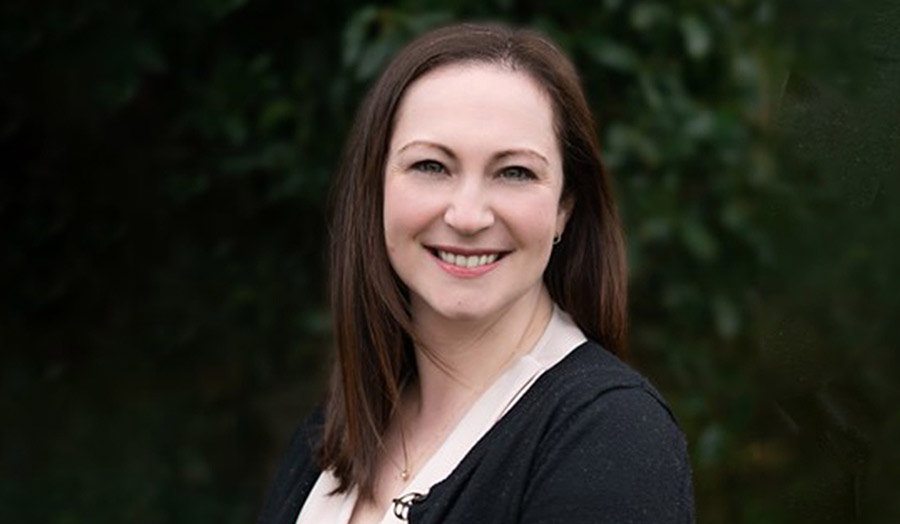

.jpg)



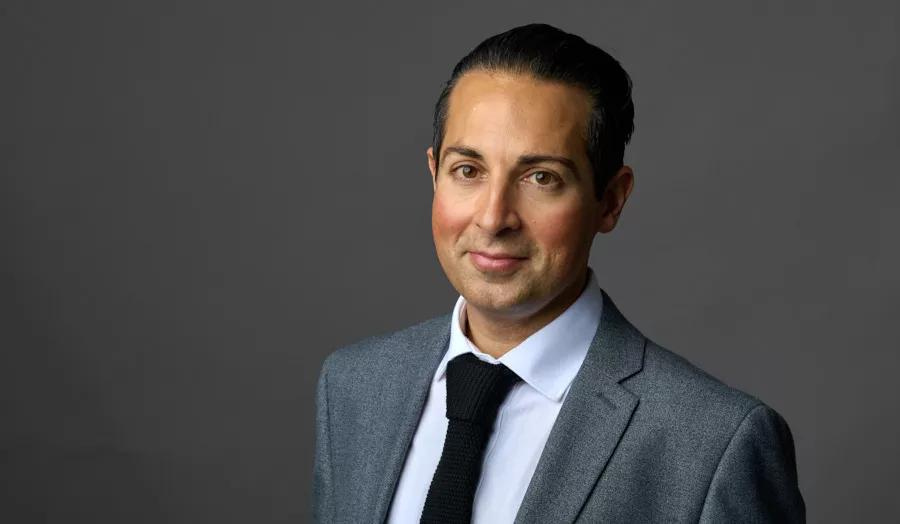

.jpg)
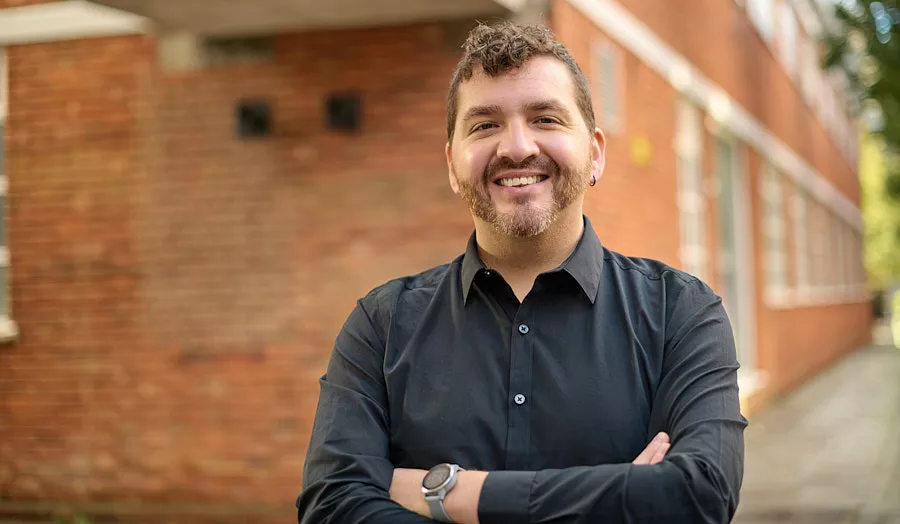







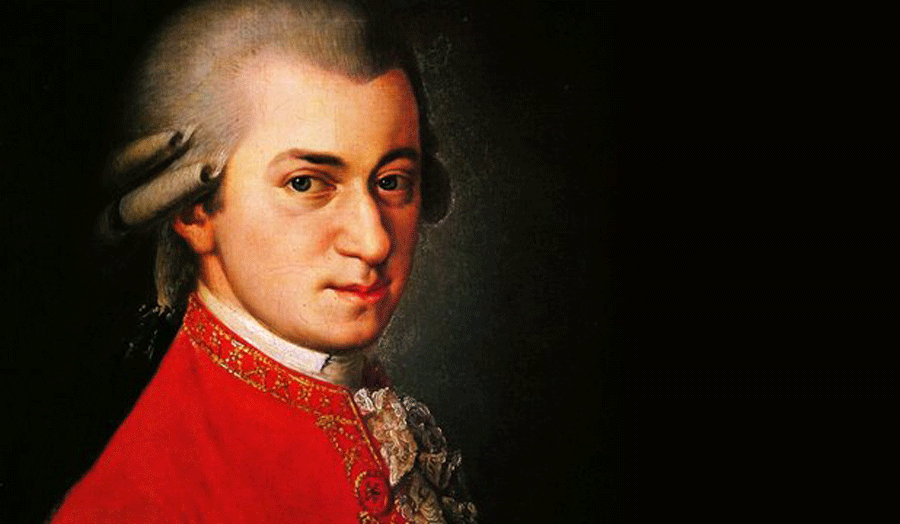

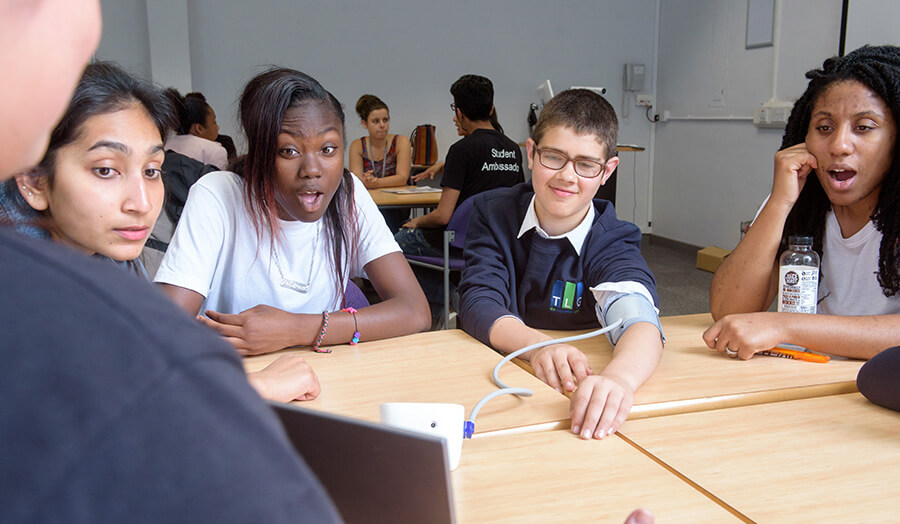
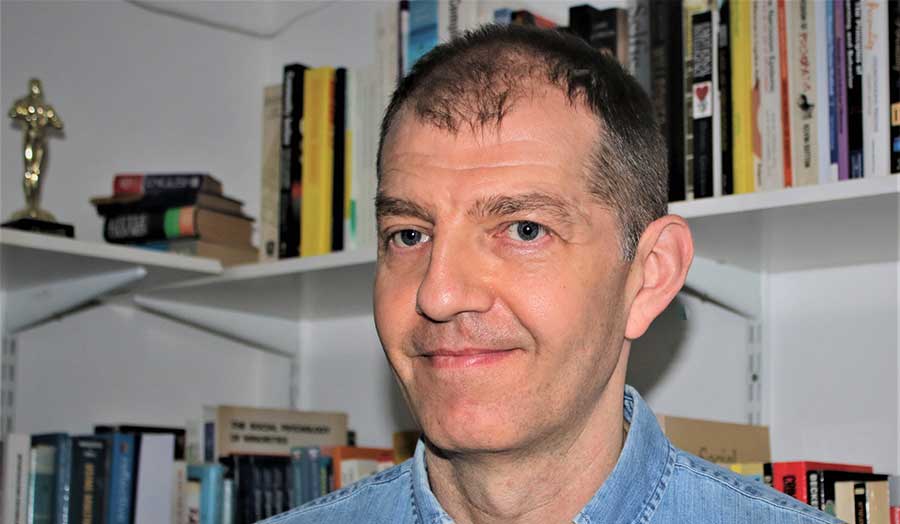

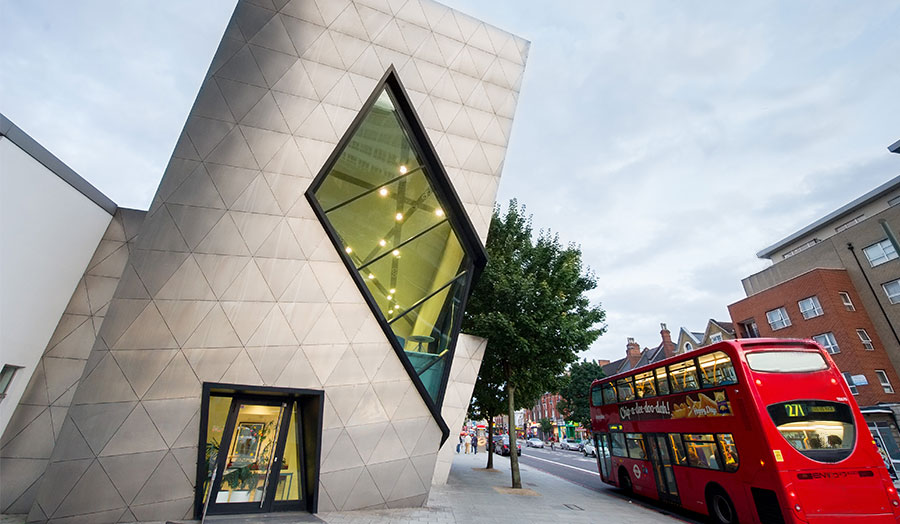

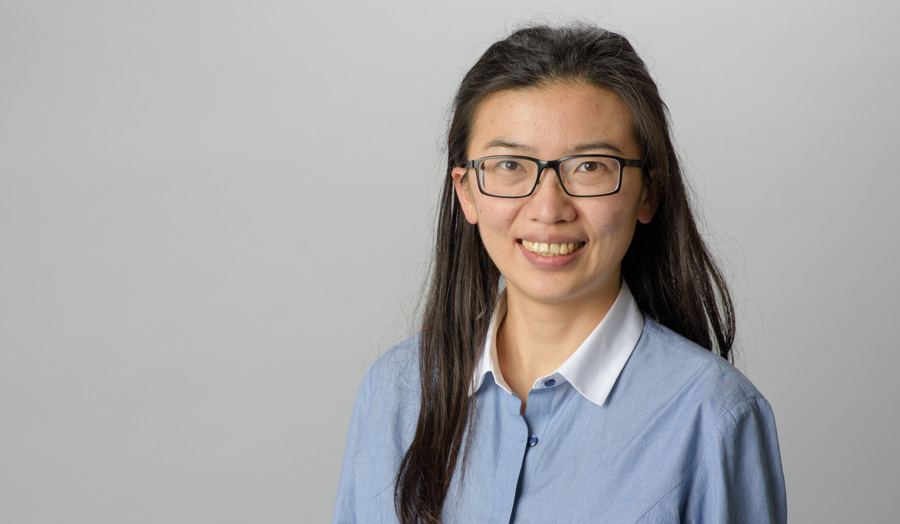
-Zervoulis_2019_0018.jpg)


